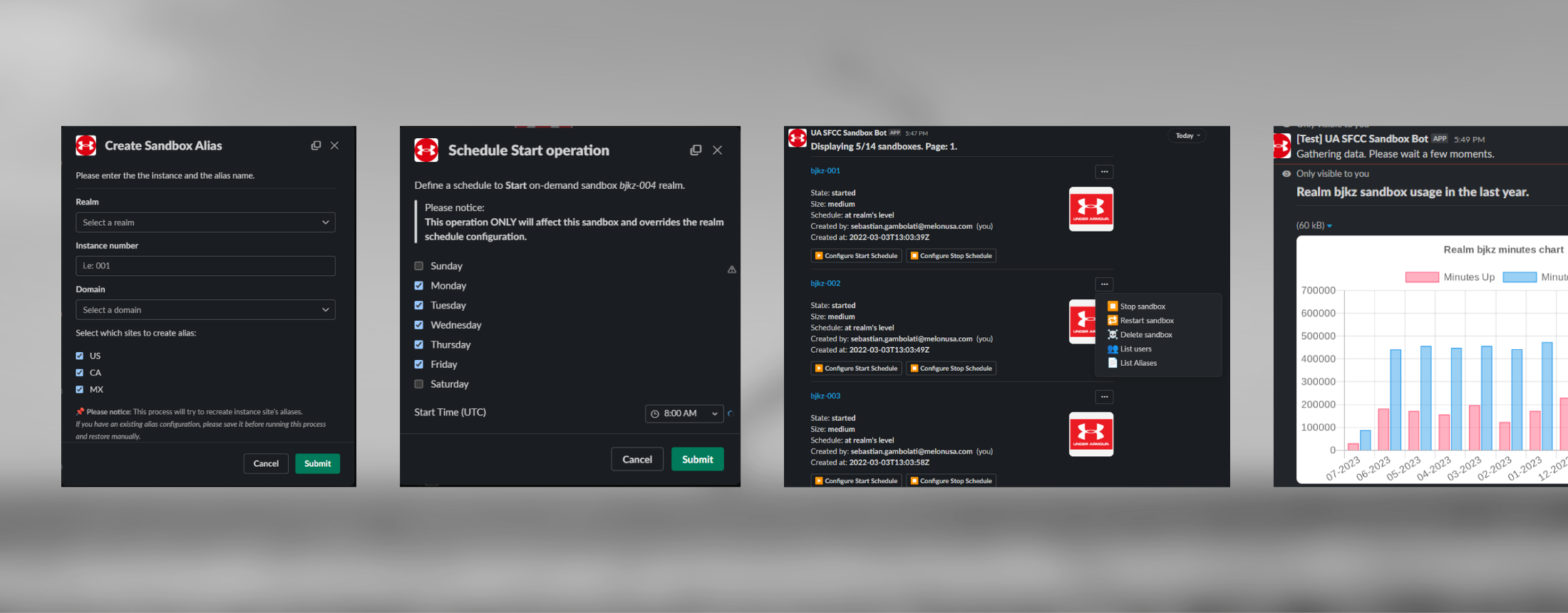Under Armour
Embedded teams to support engineering efficiency
DEPT® supports Under Armour’s engineering organisation, providing consulting, development, integration management, and more.
Over the past few years, we’ve helped them increase efficiency and improve engineering outputs across their technology stack.

Flexible engineering support
Under Armour has a deep portfolio of technology to maintain, improve, and develop. Front-end experiences, e-commerce platforms, payments, order management, and marketing technology create the digital Under Armour experience. And with four main regions worldwide, rollouts and integrates are independently managed and maintained. We focus on the US first before rolling it out globally.
DEPT® has been able to support Under Armour’s engineering team, moving between initiatives based on their immediate needs. With 10 engineers at any given time, we tackle technical debt, develop for both the front and back end and ensure their complex web of commerce solutions are properly integrated.
This flexibility helps Under Armour ensure best practices while streamlining internal engineering expenses.

Addressing technical debt
Technical debt is a problem for many large companies. It frequently occurs when a feature is rushed through development, and teams must “cut corners” to deploy it.
If left unchecked, these hastily put-together features can eventually break things, leading to bigger problems down the line.
Tackling technical debt is necessary, and using external vendors like DEPT® is an efficient and cost-effective way to do it. In this scenario, Under Armour engineers could focus on their product roadmap while DEPT® engineers refactored, ensuring debt was relieved without impacting future functionality.
By cleaning up code and developing new features through a process-driven method, we were able to help Under Armour increase engineering performance.

Improving sandbox efficiency
A challenge Under Armour faced was creating environments for new resources. Because of their size, this process was time-consuming and caused delays.
We created a custom AI-powered Slackbot to manage their Salesforce Commerce Cloud on-demand sandboxes to address this.
Our team also built a Slackbot for all user roles (developers, team leaders, and administrators) to interact with sandboxes, relying on existing Salesforce APIs, WebDav, OCAPI, and other third-party services.
This bot improved Under Armour’s sandbox provision process, creating a solution that can be consumed everywhere (bot, continuous integration workflow, command line interfaces, external WebApps, etc.). This process can run a “recipe,” which executes a number of pre-configured steps resulting in a new sandbox. This recipe framework allowed an administrator to configure the steps for creating, starting, and downloading a backup file from an external source (like AWS S3 bucket), importing a backup file into a given sandbox, and running a GitHub Action Workflow to deploy code to an operational data store.
These steps are plug-and-play and run independently, allowing new ones to be created when needed.
We also provided information about operational data store monthly credit usage, allowing teams to detect idle sandboxes and then configure start and stop schedules at both realm and individual sandbox levels.
Because of the DEPT® global network, we could staff a mix of individual contributors, senior engineers, and architects on the project for less than other digital consultants. With a project leader, the team could prioritise critical projects and finish them on time, delivering ROI quickly.
“DEPT® developers came into our organisation and gave us more room to be agile, efficient, and strategic with our product roadmap.
”Tyler Drone, Senior Engineering Manager, Under Armour



